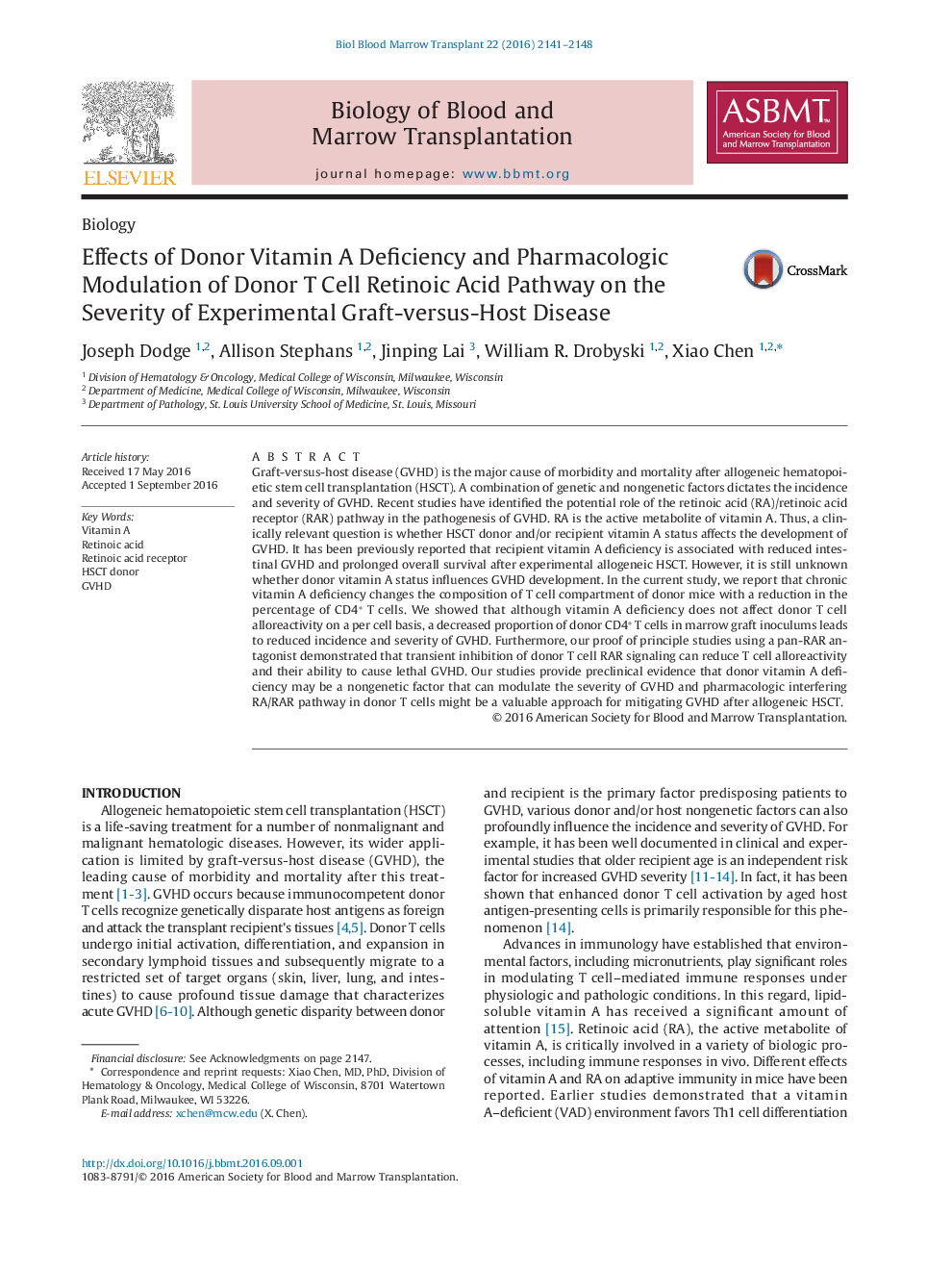| Article ID | Journal | Published Year | Pages | File Type |
|---|---|---|---|---|
| 5524305 | Biology of Blood and Marrow Transplantation | 2016 | 8 Pages |
â¢Chronic vitamin A deficiency changes T cell compartment of donor mice.â¢Transient inhibition of donor T cell RAR signaling reduces their alloreactivity.â¢Pharmacologic interfering RA pathway might be a valuable approach to mitigate GVHD.
Graft-versus-host disease (GVHD) is the major cause of morbidity and mortality after allogeneic hematopoietic stem cell transplantation (HSCT). A combination of genetic and nongenetic factors dictates the incidence and severity of GVHD. Recent studies have identified the potential role of the retinoic acid (RA)/retinoic acid receptor (RAR) pathway in the pathogenesis of GVHD. RA is the active metabolite of vitamin A. Thus, a clinically relevant question is whether HSCT donor and/or recipient vitamin A status affects the development of GVHD. It has been previously reported that recipient vitamin A deficiency is associated with reduced intestinal GVHD and prolonged overall survival after experimental allogeneic HSCT. However, it is still unknown whether donor vitamin A status influences GVHD development. In the current study, we report that chronic vitamin A deficiency changes the composition of T cell compartment of donor mice with a reduction in the percentage of CD4+ T cells. We showed that although vitamin A deficiency does not affect donor T cell alloreactivity on a per cell basis, a decreased proportion of donor CD4+ T cells in marrow graft inoculums leads to reduced incidence and severity of GVHD. Furthermore, our proof of principle studies using a pan-RAR antagonist demonstrated that transient inhibition of donor T cell RAR signaling can reduce T cell alloreactivity and their ability to cause lethal GVHD. Our studies provide preclinical evidence that donor vitamin A deficiency may be a nongenetic factor that can modulate the severity of GVHD and pharmacologic interfering RA/RAR pathway in donor T cells might be a valuable approach for mitigating GVHD after allogeneic HSCT.
